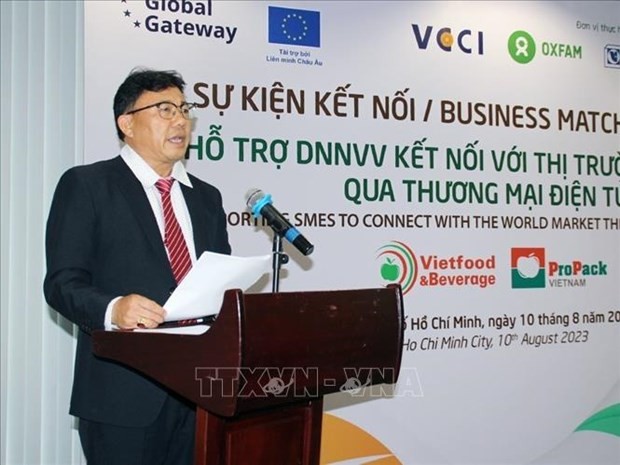
SMEs advised to take cross-border e-commerce opportunities from FTAs: Experts
Latest
 |
| A participant speaks at the event (Photo: VNA) |
On August 10, addressing a business matching event to support SMEs in accessing global markets via e-commerce in Ho Chi Minh City , experts said the business community, including SMEs, should seek to further improve their competitiveness and set higher demands in delivering shopping experiences for consumers rather than solely focusing on promotions.
Vice Director of VCCI in HCM City Nguyen Huu Nam said FTAs that Vietnam has joined bring about diverse preferential tax opportunities across sectors, and simultaneously facilitate effective participation in the supply chain of raw materials among member countries.
However, they also present numerous challenges related to rules of origin, sanitary and phytosanitary quarantine, technical barriers to trade, and trade and sustainable development, he noted.
The rule of origin is considered a key factor in unlocking opportunities for Vietnamese goods to make deeper inroads into the global market, but it also poses a significant barrier for businesses in leveraging FTA benefits, particularly in industries where Vietnam lacks strength in the supply chain of raw materials, such as textiles, electrical equipment, and bicycles, Nam said.
According to Nguyen Van Thanh, Director of the Vietnam E-commerce and Digital Economy Agency (iDEA) under the Ministry of Industry and Trade (MoIT), Vietnam is witnessing a boom of e-commerce activities with high growth rates.
E-commed increase revenue, he said.
Despite these benefits, many businesses have yet to effectively harness its potential or find sustainable development directions for their management, production and business operation, Thanh noted.
Heading towards responsible business practices in the e-commerce market, the business community, including SMEs, must proactively promote responsible business on e-commerce platforms, websites, social networks, participants said.
A sustainable e-commerce ecosystem needs the involvement and collaborative development between business partners and service providers, they added.

























